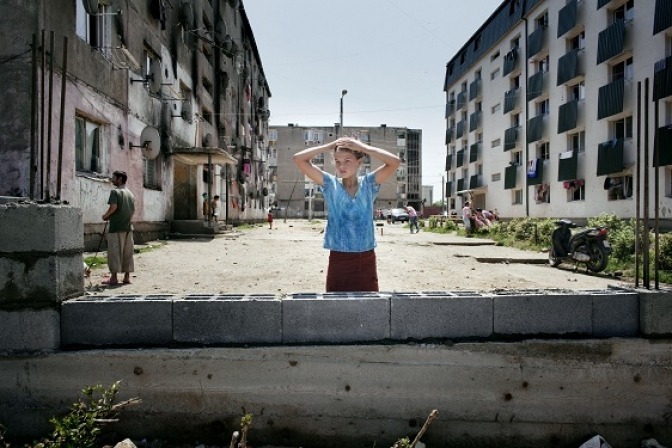The European Commission issued a statement on the occasion of the Roma Holocaust Day on Tuesday stating that the EU cannot turn a blind eye to the challenges and discrimination Roma minority is still facing.
In 2015, the European Parliament declared 2 August as the annual European Roma Holocaust Memorial Day to commemorate the 500,000 European Roma murdered in Nazi-occupied Europe, representing at least a quarter of their total population at that time. The Roma genocide during WWII has been called the ‘forgotten Holocaust’.
The day was chosen in memory of the more than 4000 Roma women, children and elderly people that were murdered in the gas chambers at Auschwitz-Birkenau on 2 August 1944.
In the statement, issued by Commission President von der Leyen, Vice-President Jourová for Values and Transparency, and Commissioner Dalli for Equality, the Commission announced that it this Autumn will present a first assessment of the national Roma strategies.
This report will assess the National Strategic Frameworks submitted by the Member States. It will also look into how Member States address the fight against anti-gypsyism and what measures they have put in place to promote awareness of Roma cultures, language and history, including the memory of the Roma Holocaust and reconciliation processes.
“We work closely with our Member States to fight anti-gypsyism,” the statement says. “In our Union, we strive for openness, tolerance and respect for human dignity for all people. Only with this spirit can we fight racism and discrimination.”
Commissioner Dalli visited the Nazi death camp Auschwitz-Birkenau where she paid respect to the victims in a commemoration speech at the memorial site. She also met with young people, many of whom are from Ukraine, with a special focus on youth, education and remembrance, as well as the aggression against Ukraine.
The Roma genocide remains an open wound, hurting throughout generations the young people today, wrote ERGO, the European Roma Grassroots Organisations Network. In most European countries, there was no official apology given to the survivors or their relatives by the state for the wrongdoings of the war.
The murders in recent years of Roma people in EU Member States, derogatory statements by high-level politicians, neglect during the COVID-19 pandemic and now the treatment of Roma refugees from Ukraine as second-class humans proves that the fears voiced by the young people are not completely ungrounded, according to ERGO.
Swedish Daily Dagens Nyheter wrote that Roma organisations have reported that there are more than 100,000 Roma refugees among the millions who have fled the war in Ukraine. Some of them are stuck because of language barriers and lack of identity documents. There are also reports that Roma refugees are not accepted by receptions centers or rejected at railway stations.
The Brussels Times

